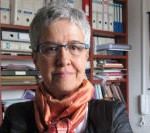Feb 2015
|HCS- Manguinhos Blog
 U.S. philanthropies are intertwined with the evolution of international health. Written by historian Steven Palmer, the book Launching Global Health: The Caribbean Odyssey of the Rockefeller Foundation examines the Foundation’s earliest ventures in international health, including its first international mission in 1914. A Portuguese version of the book will appear this year thanks to the Editora Fiocruz.
U.S. philanthropies are intertwined with the evolution of international health. Written by historian Steven Palmer, the book Launching Global Health: The Caribbean Odyssey of the Rockefeller Foundation examines the Foundation’s earliest ventures in international health, including its first international mission in 1914. A Portuguese version of the book will appear this year thanks to the Editora Fiocruz.
In 1914, the agency sent staff members to British Guiana to experiment with a new “American method” for the treatment of hookworm disease, which involved a much more intensive method of testing and treatment aimed at achieving full eradication.
Some months later, the foundation was involved in ambitious hookworm programs in the British Caribbean and in four Central American countries. According to the author, these RF programs were also the “origins of global health”, a novel and very creative new manner of conceiving a trans-national or “global” approach to public health.
In an exclusive interview with HCS- Manguinhos, Palmer examines the role of the US philanthropies in shaping the concept of Global Health and talks about his projects, including the book Health and Medicine in Latin America: A History, written in collaboration with HCS Manguinho’s editor, Marcos Cueto. This book was recently published by Cambridge University Press.
Steven Palmer is Associate Professor of History and Canada Research Chair in History of International Health at the University of Windsor, Ontario.
Why are the Rockefeller Foundation’s programs in Central America and Caribbean means the “origins of global health”?
Here I was thinking of “origins” in two senses. One is that the Central American and British Caribbean missions were the very first RF initiatives. Once the directors of Rockefeller philanthropy decide they are going to set up a foreign program – and one with huge ambitions – they look for a way to test drive or pilot the machinery. Hookworm is chosen as the disease they are going to work with, and this is significant but not really surprising. That is, Rockefeller philanthropy had been working in the public health arena in the US south since 1910, and they had worked with hookworm disease, so it made sense that they would continue with that accumulated expertise.
Also, hookworm disease was widespread in the tropical band encompassing the globe where the RF knew it was going to concentrate its efforts. But they still wanted to test it out before the full projection, and they also had a new method – the “American method”, as they called it (later changing the name to the “intensive method”) – that involved a much more systematic and physically intrusive method of testing and treatment in the interests of achieving full eradication.
They chose the British Caribbean and four Central American countries for that pilot project because these were relatively small territories, either safely under British colonial control or in countries where the US had a lot of influence. These RF programs were also the “origins of global health” in that they were original – born of a novel and very creative new manner of conceiving a trans-national or “global” approach to public health.
What are the differences and similarities between the terms “international” and “global Health?
Using the term “global” rather than “international” was an intentionally provocative decision, and I recognize the anachronism. Although “globalization” and “global health” really only entered wide use in the 1990s, I was thinking more in terms of what the great Canadian media theorist Marshall McLuhan called the “global village” – the world considered as a single community, brought together by technology and communications. I wanted to register the radical shift of the RF public health programs on these terms.
They cannot be understood as part of the slow evolution of international initiatives that characterized the main efforts of the day, for example inter-state information sharing over epidemic outbreaks, or coordination on port sanitation. Suddenly, with very little build-up, and within the space of 12 months from late 1913 to late 1914, the RF deployed a programmatic and ambitious public health model to combat hookworm disease that literally girdled the globe. Though they named the RF agency in charge the “International Health Board”, in fact it was not international at all.
It was a very well funded NGO (that term had not been coined yet either!) that worked through the British imperial system, on the one hand, and through bilateral agreements with Latin American state governments on the other.
Most significantly, it involved a plan to combat, systematically and without discrimination, a very basic and chronic affliction among “common” people in rural areas using a universal technology – a standardized method in conjunction with a standardized politico-administrative model that has to be understood as a very early – perhaps the first – incarnation of what Foucault refers to as a “bio-politics” on a global scale. It’s funny because so much has been written about the Rockefeller Foundation public health initiatives but I don’t think this truly radical aspect of them has been properly grasped.
What are your current projects?

Written by Steven Palmer and Marcos Cueto, “Medicine and Public Health in Latin America” was recently published by Cambridge University Press.
Unfortunately I have too many! I was blessed to be awarded a Canada Research Chair, which comes with wonderful research opportunities for a ten-year period (mine runs through 2016).
This has allowed me to engage in multiple research collaborations that would never have been possible otherwise. I would say that the biggest project has been working with Marcos Cueto on the Cambridge book, Health and Medicine in Latin America: A History. This was a very important book in that we tried, to the best of our abilities, to bring together as much of the wonderful scholarship of the past twenty years in this area.
On the one hand we wanted to make available in one publication all the great bibliography that is out there, and on the other we wanted to formulate some initial propositions about continental historical patterns, as well as the possible singularities about the way Latin America entered the modern medical and health world.
I am also finishing a book on the politics of Cuban medicine in the late Spanish empire and early republican period when the island fell under the close supervision of the US. Finally, I am starting to look at the representations of medicine and health at the 1967 Universal and International Exhibition – Expo 67, held in Montreal.







